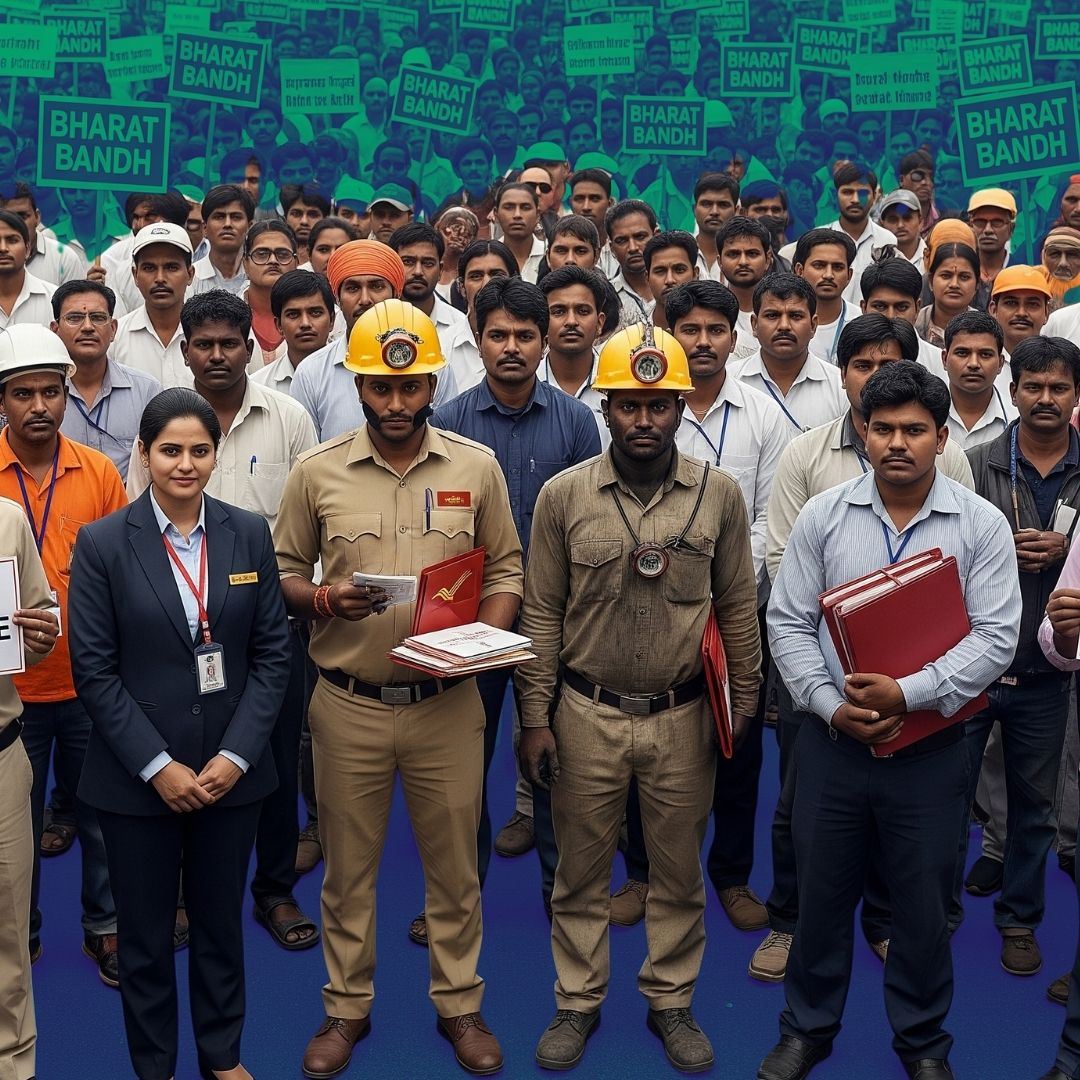Over 25 crore workers from sectors including banking, insurance, postal services, coal mining, highways, and construction are set to participate in a nationwide general strike, or Bharat Bandh, on Wednesday, July 9, 2025. The strike, called by a forum of 10 central trade unions, aims to protest against what they describe as the central government’s “anti-worker, anti-farmer, and pro-corporate policies.”
Essential services such as banking, postal, coal mining, factories, and state transport are expected to be severely affected. Union leaders Amarjeet Kaur (AITUC) and Harbhajan Singh Sidhu (HMS) have emphasised the scale of mobilisation, including support from farmers and rural workers, while criticising government policies like the Employment Linked Incentive (ELI) scheme and lack of meaningful dialogue with labour representatives.
Massive Mobilisation Across Sectors
The Bharat Bandh will impact a wide range of formal and informal sectors nationwide, including banking, insurance, postal departments, coal mines, highways, construction, and state transport. The joint forum includes major unions such as AITUC, CITU, HMS, INTUC, SEWA, AIUTUC, TUCC, AICCTU, LPF, and UTUC. Amarjeet Kaur highlighted that farmers and rural workers will also join the protest, reflecting broad-based discontent.
Harbhajan Singh Sidhu warned of disruptions in essential services and public sector enterprises. Preparations have been underway for months, with unions calling for a grand success of the strike to pressurise the government to address their demands.
Context and Causes
The strike follows the unions’ submission of a 17-point charter of demands to Labour Minister Mansukh Mandaviya last year, which remains unaddressed. The unions accuse the government of ignoring workers’ concerns by not convening the annual labour conference for a decade, weakening trade unions through new labour codes, increasing working hours, promoting contractual jobs, and pushing privatisation.
They also condemn the ELI scheme for favouring employers over job seekers and criticise recruitment policies that prioritise retired personnel over youth, especially in sectors like Railways, NMDC, steel, and education. The strike is a response to these grievances and a call for urgent government action on unemployment, wages, and labour rights.
The Logical Indian’s Perspective
The Bharat Bandh underscores the urgent need for constructive dialogue between the government, workers, and farmers to create inclusive policies that balance economic growth with social justice.
While the right to protest is fundamental, sustainable progress demands empathy, cooperation, and mutual respect among all stakeholders. The Logical Indian advocates for peaceful engagement that fosters harmony and addresses the root causes of labour unrest.












